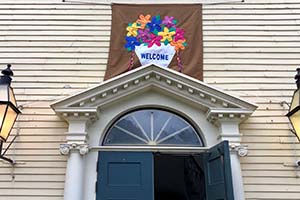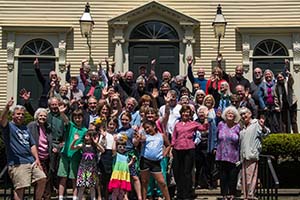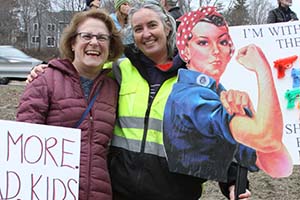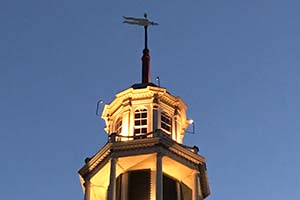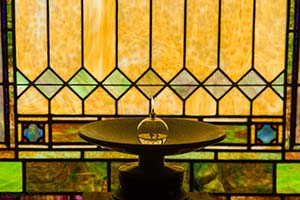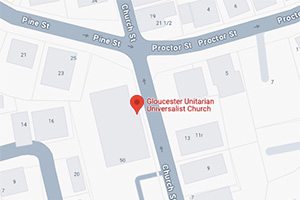About Us
Mission & Vision
Social Justice
Our History
Our Staff
UU Beliefs
All are Welcome
Our Location
The Gloucester Unitarian Universalist church in History
Our History
The Gloucester Unitarian Universalist Church has a storied history as the first Universalist congregation in the United States. It was founded by the Reverend John Murray, one of the earliest preachers of universal salvation, and a small group of dissidents from Gloucester’s First Parish Church. This group organized in 1779 as the Independent Christian Church.
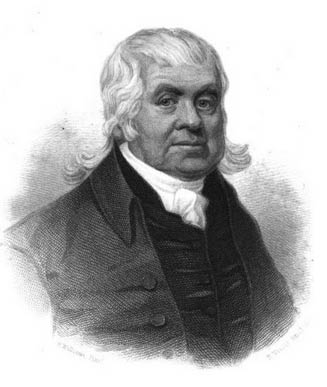
Universalism in Gloucester
Universalism, or the doctrine of Universal Salvation, arose as a movement in England and in rural areas of the American colonies in the mid-eighteenth century, especially here in the hilltowns of Massachusetts. The belief developed as a rejection of Calvinism, and proclaimed that God is a God of love, and as such would not condemn humans to eternal suffering. Salvation would be available ultimately to all.
This belief was considered extremely heretical and dangerous. A young English preacher, John Murray, was hounded out of the pulpit and ended up in debtor’s prison in England for espousing his belief in universal salvation. Murray set sail for America, landed in New Jersey in 1770, and began to preach his message to receptive groups first in the Mid-Atlantic Region and northward into New England. Winthrop Sargent of Gloucester met Murray in Boston and brought him to Gloucester to visit, and Murray ultimately made his home here and was the founding minister of the new Independent Christian Church.
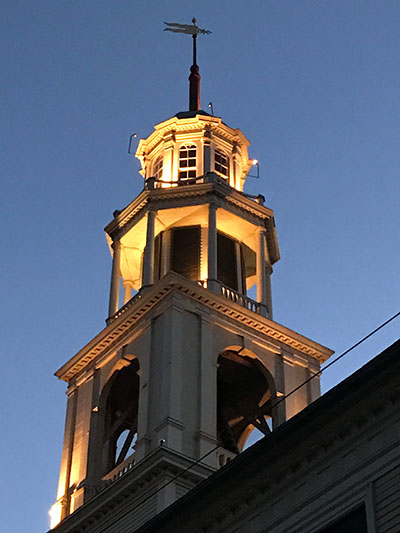
Role in Creating the Separation of Church and State
Before the Bill of Rights was appended to the United States Constitution, communities in Massachusetts had ‘established’ churches that were supported by taxation. Those people who were not members were taxed regardless.
As dissenters from the established church, the early members of the Independent Christian Church were vilified and harassed. They refused to pay taxes to support the First Parish, and the town responded by entering their homes and seizing their personal property as payment.
In 1786, the congregants of the ICC sued and won a landmark ruling that they could not be taxed to support a church to which they did not belong. This ruling predated the adoption of the First Amendment to the U.S. Constitution by five years.
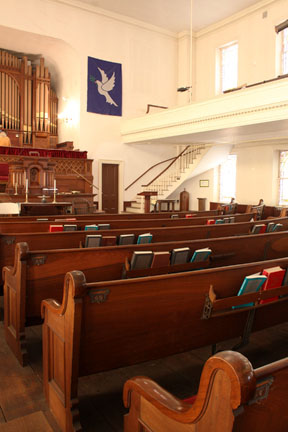
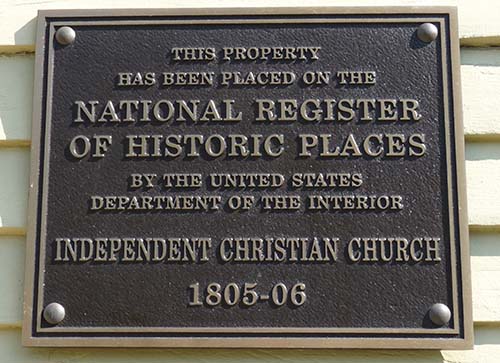
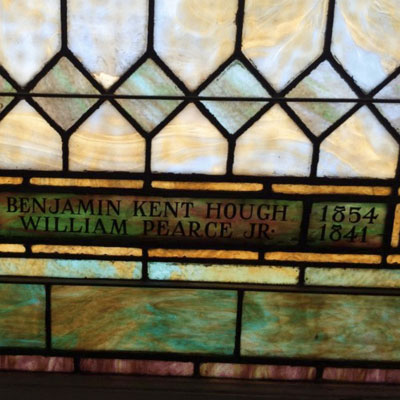
Stained glass window in the Gloucester Unitarian Universalist Church
Photo Courtesy David Rye
Photo Courtesy David Rye
